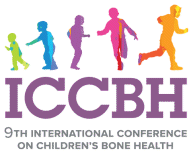Grants and Awards
New Investigator Awards
The following awards were made by the Programme Organising Committee based on scores achieved during the abstract review process.
Fawaz Arshad (Sheffield, United Kingdom), OC18
Iris Boraschi-Diaz (Montreal, Canada), OC12
Stephanie Borg (Sheffield, United Kingdom), OC4
Alessandra Cocca (London, United Kingdom), P221
Elizabeth Curtis (Southampton, United Kingdom), OC5
Ahmed Elhakeem (Bristol, United Kingdom), OC1
David Fennimore (Sheffield, United Kingdom), P93
Gali Guberman Ram (Bethesda, United States), OC21
Ghazal Hedjazi (Vienna, Austria), OC22
Takeshi Kimura (Osaka, Japan), OC23
Joseph Kindler (Philadelphia, United States), P94
Lucinda Lee (Westmead, Australia), OC11
Laura Leoni (Pavia, Italy), P37
Rebecca Moon (Southampton, United Kingdom), P154
Sonal Palande (Pune, India), OC2
Kristen Pan (Bethesda, United States), P220
Marie-Eve Robinson (Montreal, Canada), P150
Sumudu Nimali Seneviratne (Colombo, Sri Lanka), P16
Shinji Takeyari (Osaka, Japan), OC13
Francesca Tonelli (Pavia, Italy), OC19
Volha Zhukouskaya (Le Kremlin Bicêtre, France), P51
On site awards
Best oral communication
Iris Boraschi-Diaz (Montreal, Canada), OC12
Leanne Ward (Ottawa, Canada), OC14
Best poster
Jeremy Allgrove (London, UK), P117
Klara Maratova (Prague, Czech Republic), LB7
Best Poster and Best Oral Awards are judged at the Conference according to the following criteria:
Orals
1. Scientific concept: introduction to the subject, secure knowledge, aims of the investigation;
2. Scientific content: practical approach taken and results obtained;
3. Discussion of results and justification of conclusions arising;
4. Style of oral presentation: clarity, speed of delivery, engagement with audience;
5. Visual presentation: use of visual aids; clarity of presentation;
6. Timing of oral delivery: keeping within the allotted time;
7. Response to questions.
Posters
1. Scientific concept: introduction to the subject of the talk, secure knowledge, aims of the investigation;
2. Scientific content: practical approach taken and results obtained;
3. Discussion of results and justification of conclusions arising;
5. The visual presentation: use of visual aids; clarity of layout;
6. Response to questions.
